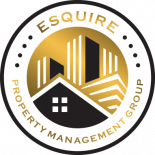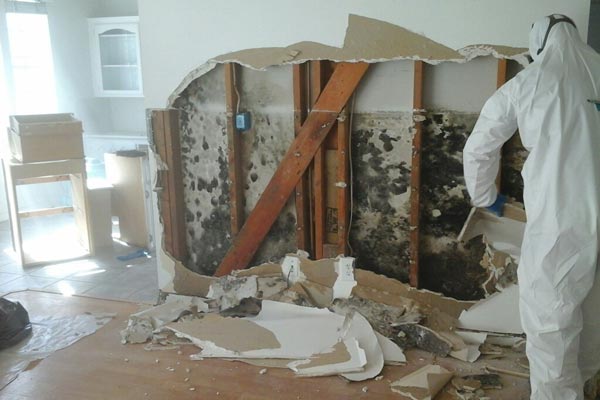
We focus on mold prevention and mitigation in our property management practice. We rarely use the “M” word because we are not an industrial hygienist or a laboratory. However, mold is commonly talked about in the real estate world and is everywhere – that simple fact doesn’t take away from the seriousness of it. A mold infestation or contamination can be extremely damaging to a property and to investment property managers. Not only does mold put your tenants/residents at risk, but you and the property owner may have to spend a significant amount of time and money to properly mitigate the environmental condition and make the rental unit a safe and comfortable place to live. Moreover, mold creates a significant stigma on a property which most certainly attaches and affects value and desirability. In addition to educating yourself about mold, one of the best things you can do is focus on the common areas (bathrooms, kitchens, laundry rooms) where mold grows and do your best to prevent it by keeping these rooms, walls, ceilings as dry as possible. However, if mold/mildew growth is already there, it’s time to take care of it before the issue becomes more serious. Remember, a property manager and/or landlord’s primary duty is to provide a habitable rental unit – a unit with mold is not habitable.
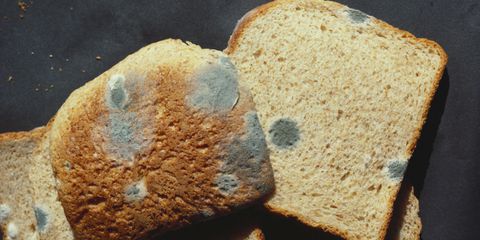 Focus on Common Mold Growth Areas
Focus on Common Mold Growth Areas
Some of the most common areas where mold grows include:
- Showers
- Bathtubs
- Windows
- Washing machine hoses and gaskets
- Plumbing leaks
- Roof leaks
- Basements and entryways
- Water heaters
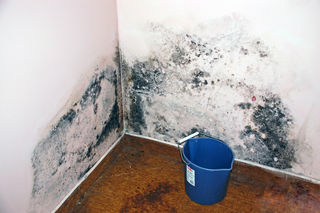
The common theme among these areas is they are places with high moisture levels. Your battle against mold prevention is fighting off moisture as much as possible. Your property management group may suggest inspecting and cleaning these areas frequently, as well as using technology and equipment to remove moisture in these vulnerable areas. We are commonly finding mold/mildew in front loading washing machine gaskets – doors are prematurely closed after use prior to natural evaporation to eliminate the water collected in the door gasket.
Invest in Mold-Preventing Technology
Some good news is there are some simple solutions for removing moisture from any given space. Many investment property managers invest in humidistats to connect to A/C units, fans and dehumidifiers to turn on the vents when the relative humidity point in the home reaches a certain level. There are also alarms you can place in areas vulnerable to mold growth that will alert you when conditions are favorable for mold growth. These alarms can also be connected to your smart home technology so it’s easy to install and use. Importantly, make sure windows are openable and fans are operational.
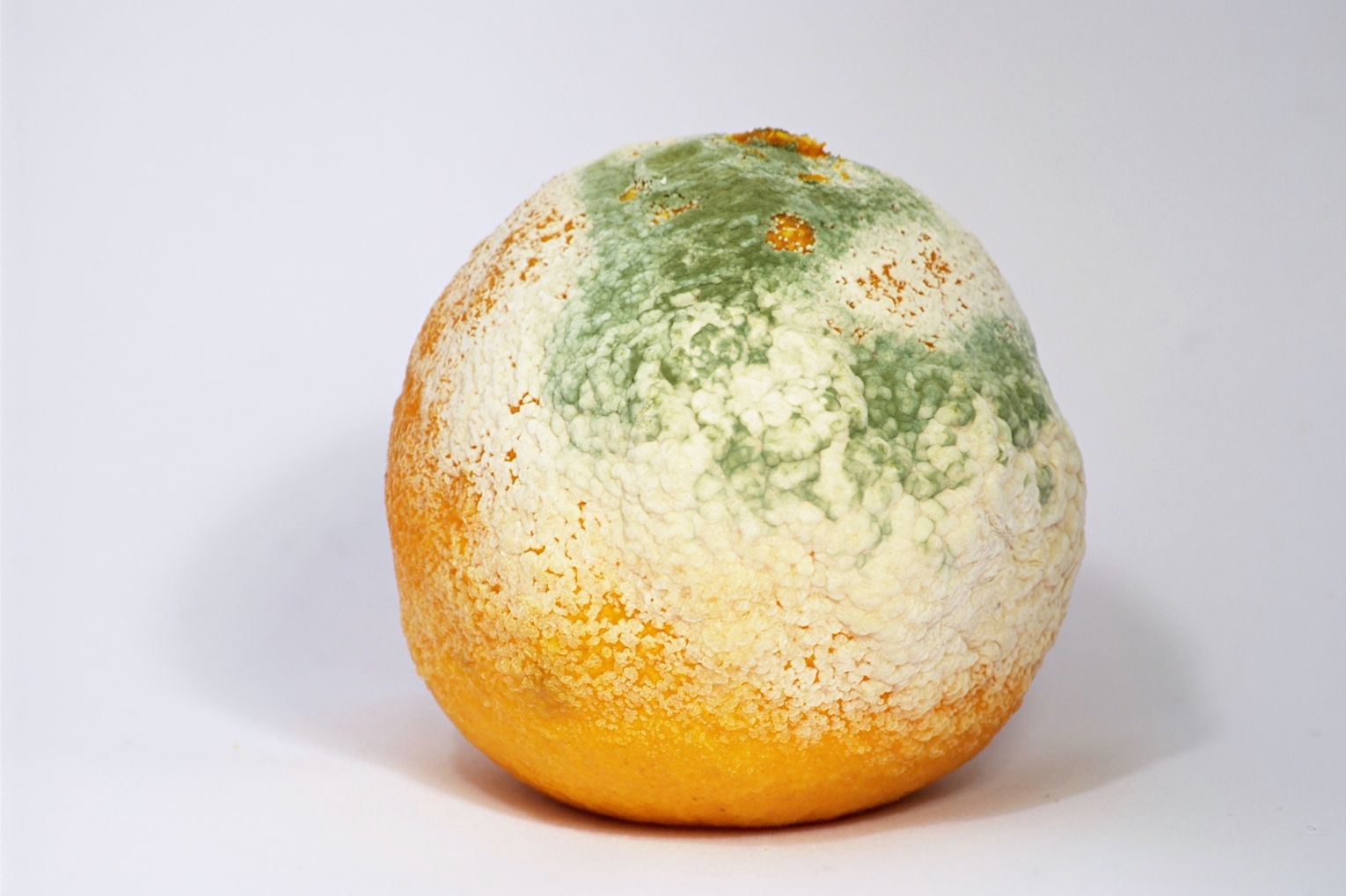 Provide Mold Prevention Tips to Tenants
Provide Mold Prevention Tips to Tenants
No matter how hard investment property managers try to prevent mold from occurring, they can’t force tenants to adhere to guidelines. To make it easier on them, provide tenants with mold prevention tips, such as how to detect condensation, what to do when a water leak is spotted, maintaining proper humidity levels indoors and more.
The only way you can force tenants to follow these tips is to hold them accountable for any mold damage.
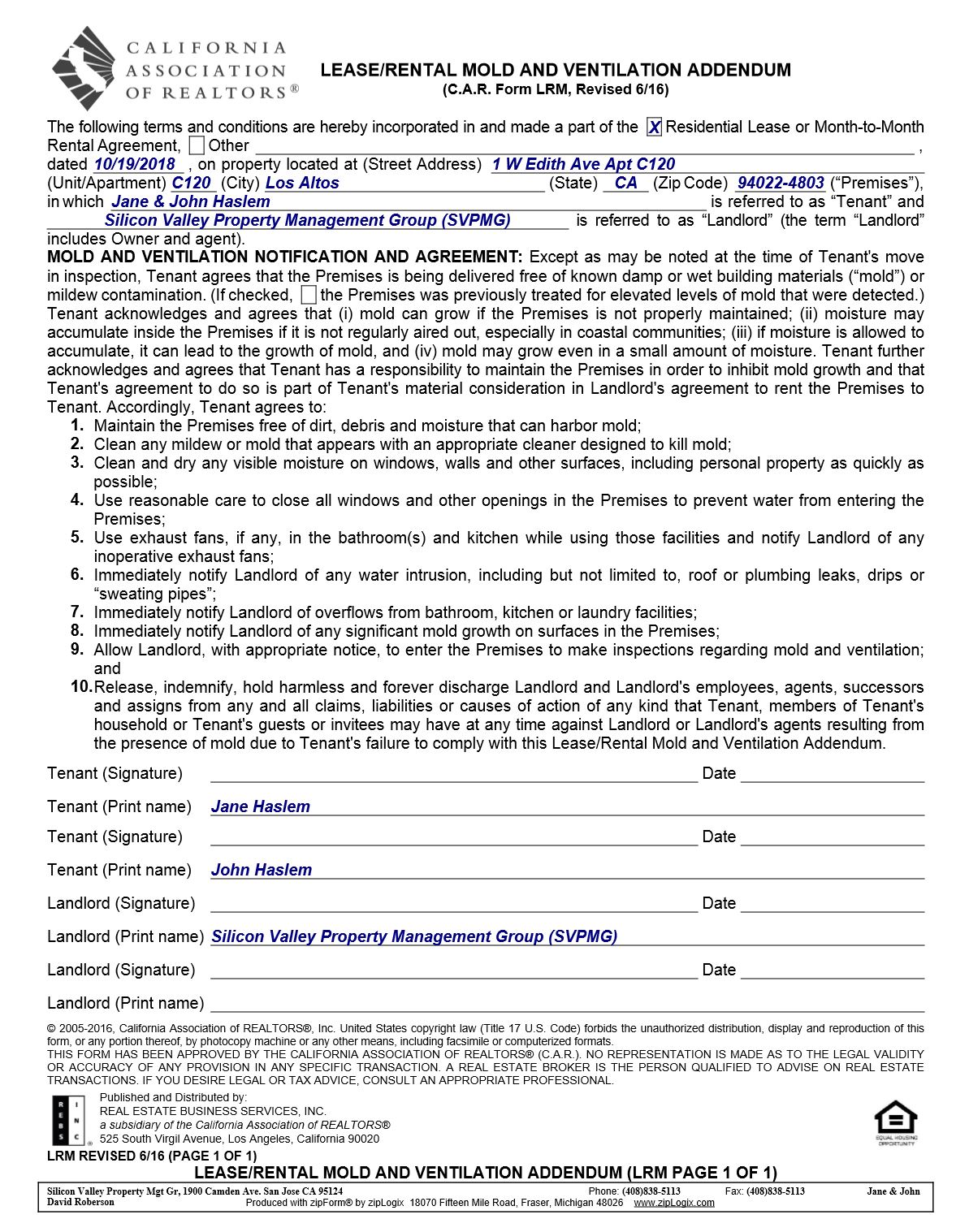 Require Mold Addendum
Require Mold Addendum
After you have educated your tenants properly about moisture intrusion and environmental concerns and protected yourself and your client by adding a mold addendum (CAR Form) to every rental agreement, you will have provided significant protection to your property investment. The worst thing you can do is rely on your insurance company as a last resort to cover any mold damage. Being proactive is the only prudent methodology to follow.
Our Advice on Mold
Esquire Property Management Group can help you protect your investment from any risk of mold damage. We specialize in property management in the South Bay, Los Gatos, Saratoga, Monte Sereno, and on the peninsula, Menlo Park, Portola Valley and Palo Alto and the surrounding areas and will ensure all your bases are covered. Something as simple as mold can be devastating to your ROI so we are here to assist. Contact us to learn more about our services and how we can get the most out of your investment properties. Also, reach out to us to get your free copy of “How to Legally Rent Your House,” and learn about the world of rental property management.
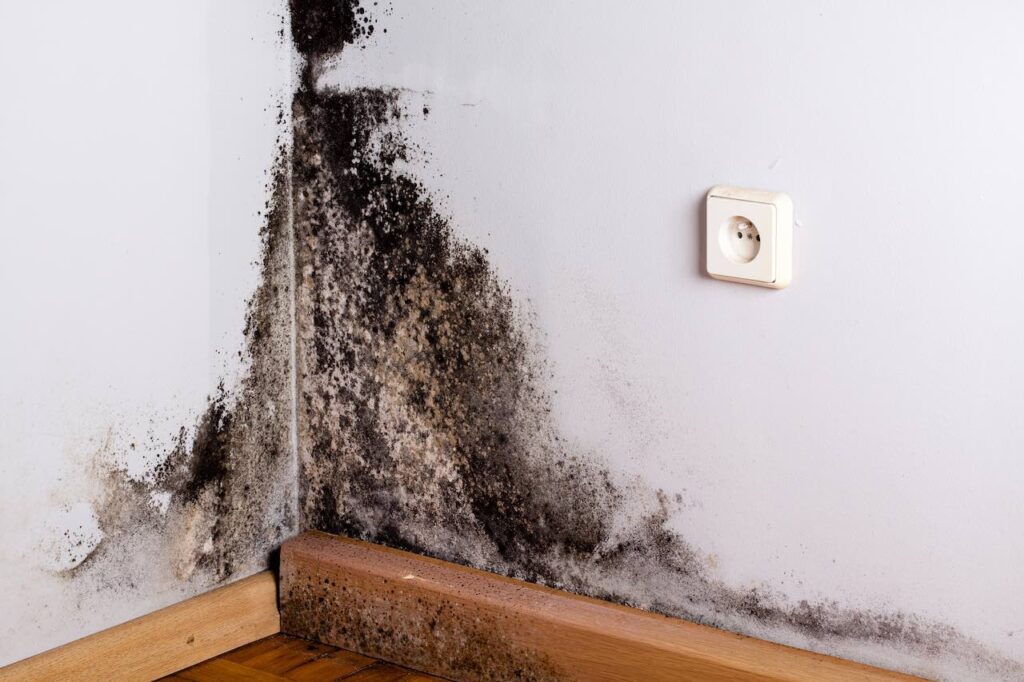
David currently is the broker/owner of several real estate related businesses which manage and maintain 300+ client properties on the San Francisco Peninsula.
Trust, transparency, and performance guarantees are the foundation of these businesses. David challenges anyone to find a PM professional that offers services similar - extensive education, customer service, and performance guarantees.
David also provides consulting for his clients on property development feasibility, construction, and complex real estate transactions.
David has authored a published law review article, three real estate books, and over 150+ real estate blog articles.
- “Wildfires, Insurance & Mortgages: Will Your Home Survive the Financial Aftermath?” - March 3, 2025
- What’s Driving California’s Commercial Real Estate Shakeup? - February 27, 2025
- Critical Issues in Triple Net Leases Investors Should Know - February 14, 2025

